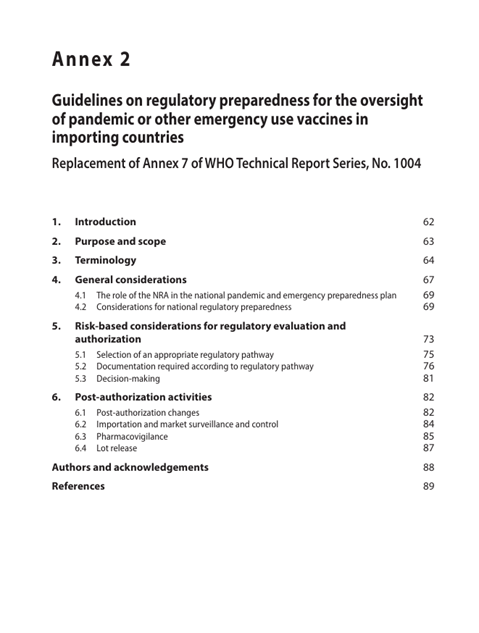Guidelines on regulatory preparedness for the oversight of pandemic or other emergency use vaccines in importing countries, TRS 1054 - Annex 2

Overview
Pandemics and other large-scale disease outbreaks caused by newly emerging or known pathogens affecting many people may result in severe disease burden and can claim millions of lives globally. Pandemics are usually caused by respiratory viruses – however, as such events may in future be caused by other pathogens, WHO continually reviews and updates its list of priority pathogens based on global scientific consensus (1).
Pandemic influenza viruses and newly emerging coronaviruses differ significantly from seasonally circulating viruses. Such viruses may evolve from viruses that previously only circulated in animals (for example, severe acute respiratory syndrome coronavirus 2) or from virus subtypes already circulating in humans (for example the 2009 A(H1N1) influenza (swine flu) virus). Due to lack of previous exposure to such viruses, the human population is considered to be immunologically naïve to them. As a result, pandemics and other largescale disease outbreaks (such as the recent Ebola, Zika and cholera outbreaks) result in an urgent need for medical countermeasures, including vaccines, to limit their spread.
Full version of the WHO Technical Report Series N° 1054
